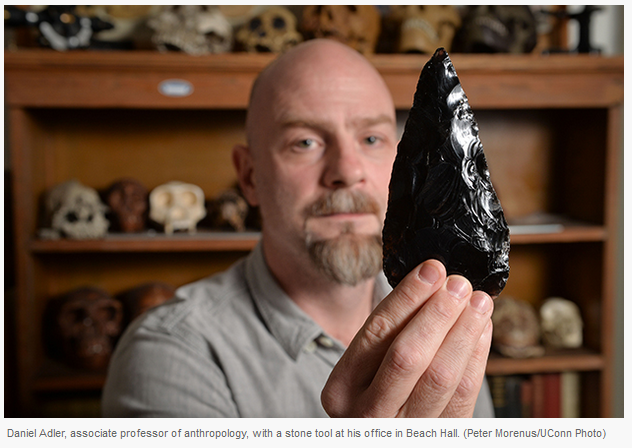ARISC Graduate Fellowships
The American Research Institute of the South Caucasus (ARISC) announces the availability of US graduate fellowships in support of research in the South Caucasus (Armenia, Azerbaijan, and/or Georgia). Awards will be made for a maximum of $1500 each. Projects in all fields in the social sciences, humanities and related sciences are eligible. Proposals will be judged on their quality and on the potential of the research to strengthen scholarship on the South Caucasus. The purpose of the fellowship is to help cover travel and/or living expenses in the South Caucasus. During his/her stay in the South Caucasus, the fellow is expected to give an ARISC-sponsored presentation on a subject related to his/her research. The fellow will acknowledge ARISC in any publication that emerges from the research carried out during the fellowship.
Application requirements: Please send a complete application including the application form, a project statement of not more than 3 pages, work schedule, budget, and curriculum vitae, by
Friday, December 18, 2015, to
info@arisc.org. Two letters of recommendation must also be submitted. All information must be received by Friday, December 18, 2015, in order for the applicant to be considered for the fellowship, as well as in any presentations of the research results.
For details, eligibility, and to download the application form, please visit
here.
ARISC Junior Research Fellowship
The American Research Institute of the South Caucasus (ARISC) announces the availability of US graduate student, postdoctoral and junior scholar fellowships in support of research and mentoring activities in the South Caucasus (Armenia, Azerbaijan, and/or Georgia). The goals of the fellowship are 1) to support research in and the study of the South Caucasus; 2) to select, recognize and financially support individuals early in their careers who demonstrate high potential to contribute to research in this region; 3) to support a mentoring relationship that will both develop the academic skills of the mentee and strengthen ties between the US and host country. Projects in all fields in the humanities, social sciences, and natural sciences are eligible, but all projects must include one or more undergraduate and/or graduate students from Armenia, Azerbaijan, and/or Georgia as research assistants/participants. Research awards will be made for a maximum of $4000 each to help cover travel, living, and research expenses in the South Caucasus. For ARISC grant purposes, mentoring is understood to involve integrating a local scholar into a research project in a fundamental way that involves cultivating skills and knowledge of methods that will contribute to the professional development of the local scholar. Proposals will be judged on their quality and on the potential of the research to strengthen scholarship on the South Caucasus.
Application requirements: Please send a complete application including the application form, a project statement of not more than 1500 words, work schedule, budget, and curriculum vitae, by
Wednesday, December 23, 2015, to info “at”
arisc.org. Three letters of recommendation must also be submitted. Letters of recommendation should be sent directly from your referee via email to info “at”
arisc.org. All information must be received by Wednesday, December 23, 2015, in order for the applicant to be considered for the fellowship.
This fellowship is supported with a grant from the US Department of Education.
For details, eligibility, and to download the application form, please visit
here.
ARISC Collaborative Heritage Management in Armenia Grant
Date Due: December 18, 2015.
The American Research Institute of the South Caucasus invites proposals from collaborative teams in support of the preservation and conservation of the Republic of Armenia’s archaeological and historical heritage. This ARISC program, generously funded by Project Discovery!, seeks to foster joint work between American and Armenian scholars and institutions dedicated to the proper curation and preservation of heritage materials such as artifacts, sites, and manuscripts. Successful applications will demonstrate substantive collaborations that not only contribute to heritage conservation but also demonstrate efforts to build capacity and enhance local knowledge of current techniques and approaches to heritage management. These grants require active participation of both American and Armenian principal investigators in all aspects of the collaborative project.Examples of potential projects include:
- Restoration of threatened archaeological remains
- Stabilization of historical resources
- Long-term protection for archaeological sites or historical monuments
- Curation and permanent exhibition of heritage materials
- Cataloging and recording of collections
- Digitization of heritage materials for wider public access
- Enhancement of conservation lab facilities
- Advanced training for specialists
Given the level of funding, these awards can also be used as seed grants to demonstrate the feasibility of a pilot program and/or in concert with funds from parallel sources.
Grantees will be required to either give a talk or run a workshop pertinent to the subject of the grant while in Armenia.
For details, eligibility, and to download the application form, please visit
here.
ARISC does not discriminate on the basis of race, color, national origin, religion, sex, physical or mental disability, medical condition, ancestry, marital status, age, sexual orientation, or status as a covered veteran.
